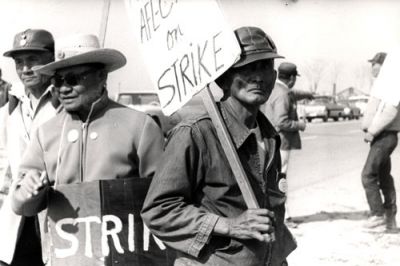Peering Behind OIRA’s Veil of Secrecy
OIRA is staffed by under-trained, over-worked short-termers.
OIRA is an agency whose functions are as mysterious to most people as its name. It doesn’t help much to learn that OIRA stands for Office of Information and Regulatory Affairs. The phrase “regulatory czars” is more informative. OIRA runs the federal government’s regulatory process. Although agencies like EPA are required to have a lot of transparency, not much public information is available about who works at OIRA or what they do. But Greenwire has managed to accumulate some very interesting information about OIRA’s staff and their work. Here are some quick takeaways:
- Staffing levels have been cut by almost half since the office’s heyday under Reagan.
- Although the office’s main function is supervising cost-benefit analysis, only a handful of staffers have economics Ph.Ds. “The most common degree is a master’s degree in public affairs, public policy or public administration. There is also considerable expertise, in statistics, law, information technology and environmental science.”
- The office has five sections: statistical and science policy; food, health and labor; transportation and security; natural resources and environment; and information policy. (Even that is more than you can find out from OIRA’s website)
- The desk officers who superintend particular rules are in their 20s or early 30s — in other words, not very experienced. On average, they stay four or five years, so their opportunity to acquire expertise is limited.
- “The pay isn’t bad. Many OIRA staffers listed on recent White House meeting records were making upward of $100,000 in 2012.” But hours are long, and the workload is heavy.
The key takeaway is that OIRA has far less expertise or time to learn the details of particular issues than the staff of EPA. OIRA may fill the gap by outsourcing some of the work to economists elsewhere in the federal government. But it’s easy to see why agency heads and cabinet officers don’t have much respect for OIRA’s expertise.
Reader Comments
3 Replies to “Peering Behind OIRA’s Veil of Secrecy”
Comments are closed.







Mr. Farber:
You most certainly are correct that OIRA is overworked and understaffed.
I disagree, however, completely with your conclusions regarding the expertise of OIRA staff.
OIRA has been in business for more than three decades and if you look at the staff expertise over that period of time I believe you will arrive at a different conclusion.
A case in point is my background, having been instrumental in the formation of OIRA.
I have a PhD. in economics and a B. S. in chemical engineering, I have been admitted to the American Men and Women of Science and I worked as an operations research analyst.
The many talented OIRA employees who followed me have comparable backgrounds.
Dr. Tozzi, are there specific facts in the article Dan cites that you believe are incorrect?
Those points are not Dan’s own conclusions; they are derived directly from the article he cites:
http://www.eenews.net/stories/1059994711
Professor Hecht:
I appreciate the insightful question you raise.
The news organ which is the source of the story is very informed and reports very accurately.
My point is in the inferences that are drawn from the news story.
More specifically the thrust of the argument is that OIRA is supposed to review the economics of rules but only a small number of economists are on its staff.
The problem with this reasoning is that in many rules the benefits are associated with improvements in public health and before you assign a dollar value you must have a precise undertanding of the public health consequences, a tedious job best performed by scientists